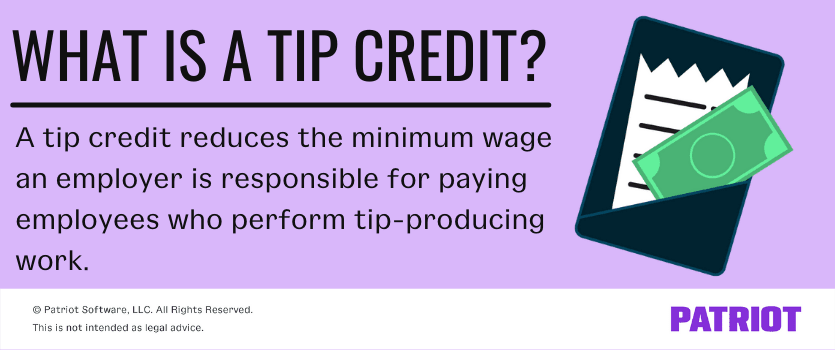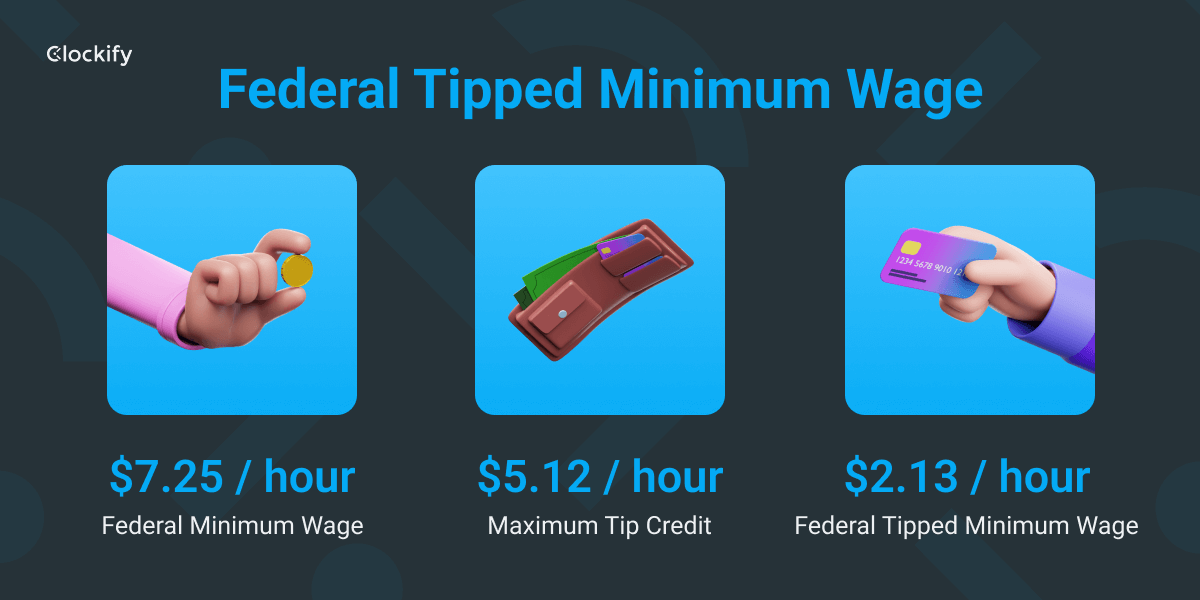Imagine working over 70 grueling hours in just two weeks, only to receive a measly $9.28 paycheck.
For bartender Aaliyah Cortez, this harsh reality went viral when she shared her minuscule earnings on TikTok, sparking a heated discussion about the crucial role tips play in the livelihood of service industry workers in the US.
The Controversial Tipped Minimum Wage
Understanding the Tip Credit

At the heart of Aaliyah’s plight lies the contentious “tip credit” law.
This regulation allows employers to pay tipped employees less than the federal minimum wage, as long as their tips make up the difference.
As a result, bartenders and servers often earn a base rate of around $2-3 per hour before tips.
The logic behind this system is that tipped workers will earn more through gratuities than they would with a flat minimum wage.
However, critics argue that it unfairly burdens customers to subsidize workers’ wages – a practice virtually unheard of in most other developed nations.
“There are laws set up that allow tipped employees to be paid under the federal minimum wage, which makes us rely on the customer to pay our wages,” Aaliyah explained.
The Debate Around Tipped Minimum Wage

Defenders of the tipped minimum wage argue that it incentivizes excellent service and allows hardworking servers to earn well above minimum wage through tips.
However, detractors counter that it creates an unstable and inconsistent income, leaving workers at the mercy of customers’ generosity.
As Aaliyah’s viral video demonstrates, this system can lead to shockingly low paychecks, even after logging excessive hours.
The debate rages on, with some states opting to raise or abolish the tipped minimum wage, while others maintain the status quo.
| State | Tipped Minimum Wage |
|---|---|
| Texas (Aaliyah’s state) | $2.13 |
| California | $15.00 (no tip credit) |
| New York | $8.65 |
Aaliyah’s Story
The Viral Video

Aaliyah’s viral TikTok video offered a jarring glimpse into the realities of tipped work.
After toiling for 70.8 hours over two weeks at an Austin sports bar, her paycheck displayed a mere $150.81 in gross earnings – her $2.13 hourly wage before tips and taxes.
However, after deductions for Social Security, Medicare, and federal income tax, Aaliyah was left with a paltry $9.28 for her efforts.
“This is why you should always tip your bartenders, servers or anyone who waits on you,” she captioned the video, which quickly amassed over 937,000 views.
“I cannot afford to live off of $2.13 an hour, so I solely rely on the generosity of my customers,” Aaliyah told.
The Reality of Tipped Workers

For Aaliyah and countless others in the service industry, such meager paychecks are not anomalies; they’re the norm.
“All of my checks can vary just depending on how much I made in tips for the two-week period. I’ve gotten zero-dollar checks to about $12,” she told.
Beyond the inconsistent income, tipped workers’ earnings can be impacted by factors entirely out of their control.
“The most upsetting situation happens where a table doesn’t tip is from sports fans when their team doesn’t win. We have absolutely no control of that and we’ve most likely waited on them for a few hours!” Aaliyah lamented.
Moreover, a portion of their hard-earned tips often goes toward tipping out other support staff, such as food runners and bussers.
And if a customer dines and dashes, that unpaid tab comes directly out of the server’s tips.
The Inconsistency and Struggles
Unpredictable Income

One of the most significant challenges faced by tipped workers is the sheer unpredictability of their income.
With weekly earnings fluctuating wildly based on customer volume, generosity, and countless other variables, budgeting and financial planning become exercises in futility.
As Aaliyah attested, “Fortunately, I’m able to make enough to get by with a little struggle here and there, but it’s a little tough to think that if an emergency came up, it could hurt me financially.”
An unexpected medical bill or slow period could easily plunge a tipped worker into financial hardship.
As one commenter on Aaliyah’s video remarked, “I’ve never been so glad to be Australian” – a sentiment echoed by many in countries without entrenched tipping cultures.
Devaluing the Work

Beyond the financial strain, the reliance on tips can breed a sense of devaluation and disrespect toward service industry professionals.
When a customer stiffs a server on the bill, it sends the implicit message that their hard work and attentive service were not worthy of compensation.
“I absolutely believe people who haven’t worked themselves or have someone close in the industry don’t understand how much a tip really means to us. We literally rely solely on tips,” Aaliyah expressed, highlighting the disconnect between customers and the realities of tipped work.
This disconnect is exacerbated by the perception that serving or bartending is an unskilled or temporary job, rather than a professional career path deserving of a living wage and benefits.
The Need for Reform
Calls to Raise the Tipped Minimum Wage
In light of the challenges faced by tipped workers, advocates have increasingly called for reforms to the tipped minimum wage system.
Some argue for a modest increase in the base hourly rate, providing a more consistent safety net while still allowing for tipping.
“I believe the minimum wage for any tipped employee should be raised, federally and statewide,” Aaliyah stated.
“There are so many different people in the industry and for so many reasons – from single parents to people in school – and we deserve to have adequate and consistent pay so we don’t have to struggle to keep our heads above water.”
Others, like immigration lawyer Saru Jayaraman, advocate for abolishing the tipped minimum wage altogether, arguing that “when you earn a $2 or $3 wage, as it is in most states, your wage is so low… you’re living completely off of tips.”
Potential Solutions
While raising the tipped minimum wage could provide more stability, some argue for more sweeping changes to align the US with other developed nations that have eliminated tipping cultures entirely.
“This is why the US should be like EVERY other developed nation and not have a tip culture. Businesses should pay your wages. Tips shouldn’t be a thing,” one commenter on Aaliyah’s video opined.
Under this model, employers would pay servers and bartenders a consistent, living wage without relying on tips.
Prices would likely increase to account for the higher labor costs, but proponents argue it would create a more equitable and sustainable system.
However, such a seismic shift would face significant opposition from the restaurant industry and some tipped workers who prefer the potential for higher earnings through tips.
As with any proposed reform, finding a balanced solution that satisfies all stakeholders – employers, workers, and customers – presents a formidable challenge.
Responses and Perspectives
Supporters of Tipping Culture

While Aaliyah’s video garnered widespread sympathy and calls for change, not everyone condemned the tipping system.
Some servers and bartenders defended the practice, arguing that skillful workers can earn far more through tips than they would with a flat hourly wage.
“I’m a waitress & my bfs the cook.. I bring more home in tips than he does on his paycheck. Either ur a bad server or ur not working at the right place,” one commenter asserted.
From this perspective, tipping incentivizes excellent service and allows the most skilled and hardworking servers to reap greater rewards.
There is a concern that moving to a standard wage could lead to complacency and lower the overall quality of service.
Restaurant owners and industry groups have also voiced opposition to abolishing tipping, citing the increased labor costs and potential for higher menu prices that could drive away price-sensitive customers.
The Customer’s Role
Regardless of one’s stance on the tipping debate, Aaliyah’s viral video served as a poignant reminder of the immense impact a customer’s gratuity – or lack thereof – can have on a service worker’s livelihood.
As one commenter bluntly stated, “we don’t this problem in Australia, because we’re actually developed.”
While harsh, the remark underscores the unique challenges faced by tipped workers in the US, where societal norms and expectations around gratuities can vary widely.
For customers, the decision to tip (or not) can be influenced by factors like quality of service, personal beliefs about tipping, and even the ambiance or prestige of the establishment.
However, Aaliyah’s story highlights the human cost of that decision, reminding patrons that their tips quite literally “pay the wages” of those who serve them.
The Human Element
Profiles of Tipped Workers
Behind the statistics and policy debates lies the human element – the stories of hardworking individuals like Aaliyah, for whom tipping is not just a philosophical issue, but a matter of survival.
Aaliyah, a 20-year-old single mother, chose to share her plight not to shame her employer, but to raise awareness about the realities of tipped work.
Despite the challenges, she expressed a passion for her job, stating, “I absolutely enjoy being a bartender, but I posted my paycheck as a means of encouraging people to tip.”
Others in the industry echoed similar sentiments, caught between loving their work and struggling with the inconsistent pay and lack of respect it often entails.
Their stories serve as a powerful reminder that behind every meal or drink served, there is a human being working tirelessly to provide an enjoyable experience, often while grappling with financial insecurity.
The Way Forward
Aaliyah is not alone in her fight for better wages.
Many other service workers and advocates have shared their stories and experiences, highlighting the widespread nature of the issue.
For example, a waitress in New Jersey recently received nearly $2,000 in donations after diners left her no tip and a rude note.
Such stories demonstrate both the challenges and the potential for community support in addressing wage disparities.
As the debate around tipping rages on, Aaliyah’s viral moment has undoubtedly brought renewed attention to the plight of tipped workers and the need for reform.
Whether through incremental changes to the tipped minimum wage, a complete overhaul of the system, or greater public awareness and respect for the profession, the path forward remains uncertain.
However, one thing is clear: the status quo is untenable for too many hardworking individuals like Aaliyah, who deserve not just generous tips, but consistent, adequate pay and a sustainable career path in an industry they are passionate about.
As Aaliyah so poignantly stated, “I, of course, think there needs to be change in the industry, but until that happens hopefully people can finally understand the importance of tipping. I promise you, we’ll be very appreciative.”
Conclusion
Aaliyah Cortez’s viral video offered a startling glimpse into the harsh realities faced by countless tipped workers across the United States.
Her $9.28 paycheck for over 70 hours of grueling work served as a sobering reminder of the crucial role tips play in sustaining the livelihoods of servers, bartenders, and others in the service industry.
While opinions remain divided on the merits and drawbacks of the tipping system, Aaliyah’s story has reignited a crucial conversation about the need for reform, fair compensation, and a greater appreciation for the hard work and dedication of those who serve us our meals and drinks.
As we continue to grapple with these complex issues, one thing remains clear: the next time you receive exemplary service at a restaurant or bar, remember the human behind that friendly smile and attentive service – and tip accordingly.
For countless workers like Aaliyah, your generosity could mean the difference between making ends meet or struggling to survive.

